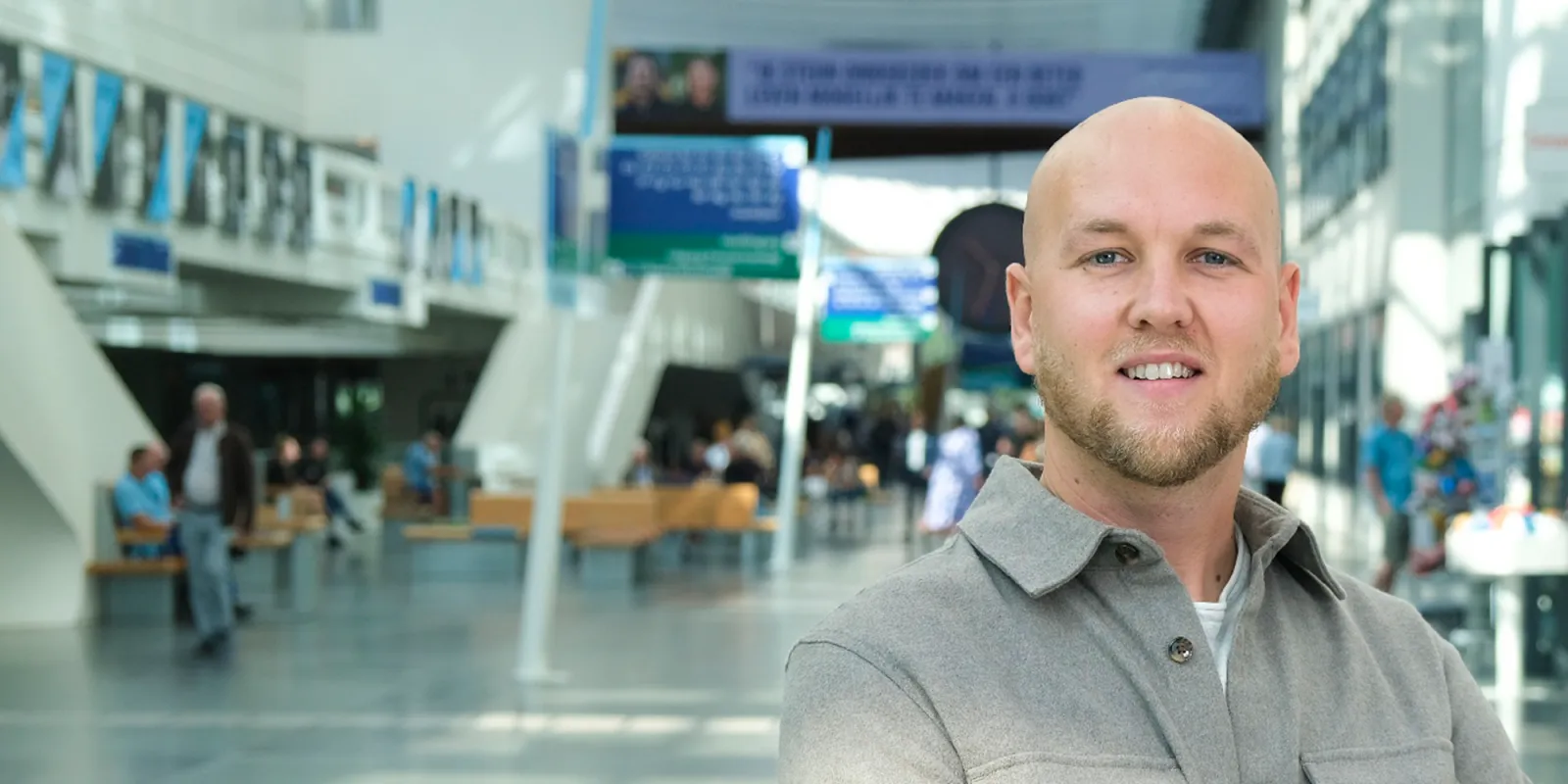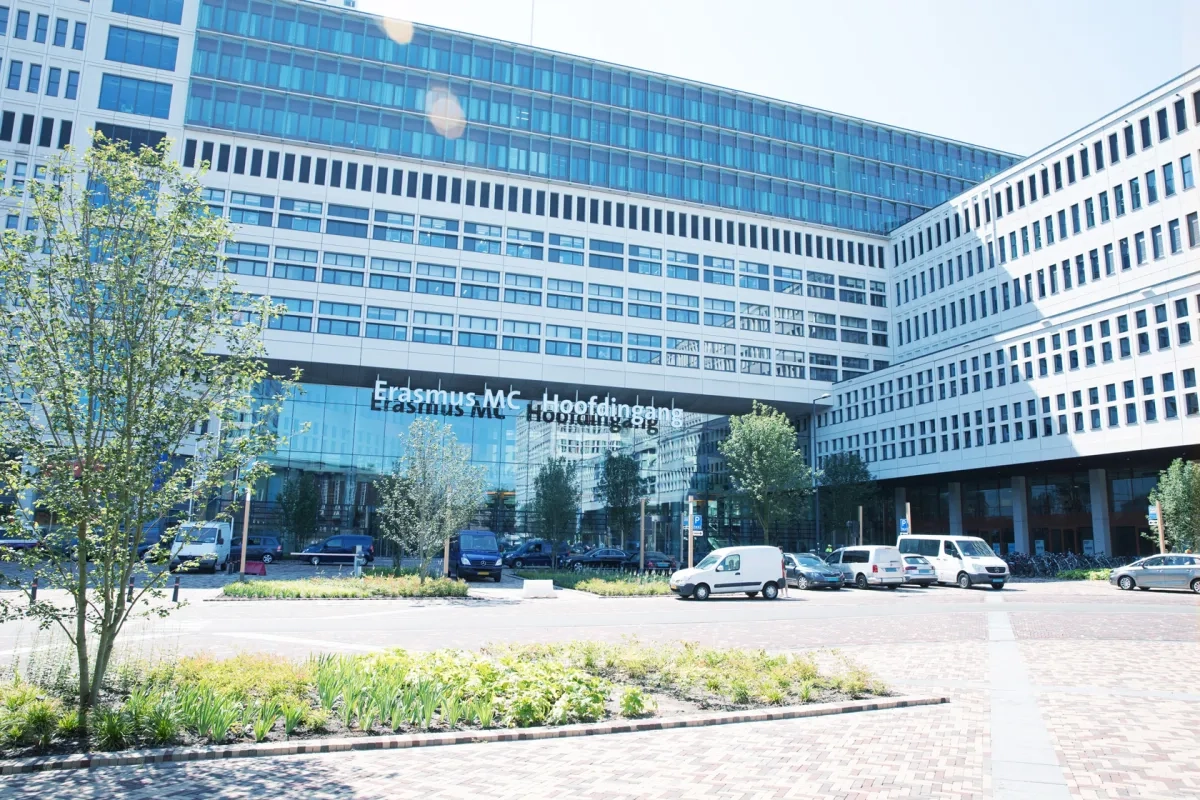
- All vacancies
-
PhD-student to study the effects of DNA damage on transcription
PhD-student to study the effects of DNA damage on transcription
A single-molecule imaging approach to uncover the cellular responses to DNA damage-induced transcription stress.- Closing date 18-12-2025
- 1772
- 36 hours
- Research university
- Research & Education
- Closing date 18-12-2025
- 1772
Job description
Correct gene transcription by RNA polymerase II to transcribe new RNA molecules is crucial for proper cell function. However, transcription by RNA polymerases can be blocked by DNA damage, for example by UV-light or other chemicals. This transcription-blocking DNA damage can therefore cause cellular dysfunction and cell death, eventually resulting in DNA damage-induced aging and genome instability. Cells counteract these deleterious effects by transcription-coupled repair (TCR), which specifically removes DNA damage in our genes, thereby safeguarding transcription. Our lab has identified several important factors that provided novel insights in this repair pathway (van Sluis et al., Nature Cell Biology 2024; Ramadhin et al., Molecular Cell 2024; van Toorn et al., Molecular Cell, 2022; Geijer et al., Nature Cell Biology, 2021; Tresini et al. Nature, 2015; Schwertman et al. Nature Genetics, 2012).
Surprisingly little is known about the molecular consequences of DNA damage on RNA polymerase itself. This is an important question to solve, as DNA damage-stalled RNA polymerase causes bigger problems for the cells than the actual DNA damage itself. In this project we will use innovative single molecule imaging procedures in combination with CRISPR-Cas9-mediated gene editing to for the first-time study the effect of DNA damage on RNA polymerases in living cells. This project will provide important molecular insights in how DNA damage affects Pol II and interferes with the transcription process, thereby improving our understanding of the cellular mechanisms that protect transcriptional integrity, which is essential to understand why organisms age.
Work environment
The department of Molecular Genetics at the Erasmus MC ( https://www.erasmusmc.nl/en/research/departments/molecular-genetics ) has a strong world-wide reputation in understanding the DNA damage responses at the molecular, cellular and physiological level. The department consists of a vibrant and international group of more than 80 researchers working on various aspects of DNA damage, DNA repair and other DNA damage-related responses. This project will be carried out in the Marteijn lab (www.genomestability.nl) at the Erasmus MC in a collaborative project with the Lenstra lab (https://www.nki.nl/research/research-groups/tineke-lenstra/) at the NKI where another PhD student will work on this project. The Marteijn lab studies the molecular mechanisms how cells deal with DNA damage that interferes with transcription, using a multidisciplinary approach using molecular and cell biological approaches. Our lab works in a highly collaborative manner with a strong focus on state-of-the-art live-cell imaging, genetic and proteomic tools. Our group acts internationally at the forefront of DNA damage and transcription stress. We offer a dynamic, challenging, and cooperative research environment and an excellent training and supervision platform through the PhD teaching program of our Erasmus MC graduate school (https://www.erasmusmc.nl/nl-nl/graduate-school).
The Erasmus MC stands for a healthy population and excellence in healthcare. By conducting groundbreaking work, we aim to push boundaries through leading the way in research, education and healthcare to improve and renew the healthcare of today and the public health of tomorrow. To stimulate research, the Erasmus MC provides access to the latest equipment and techniques in a state-of-the-art environment.
Qualifications and skills
We are looking for a highly motivated candidate with a MSc. degree in a relevant discipline (e.g. Molecular/Cell biology, Biomedical Sciences, Molecular Sciences, Nanobiology). Experience with the basal transcription process, DNA damage response, live cell imaging, or with image analysis is an advantage but not essential. The candidate should be able to independently design, conduct and evaluate research projects, have outstanding theoretical and experimental research skills, is well-organized and result-driven with a strong team spirit. Furthermore, a strong command of (scientific) English in speech and writing is essential (EUR requirements minimum IELTS overall score of 7.0 [comparable to TOEFL PBT: 600; TOEFL CBT: 250; TOEFL IBT: 95]). Being able to present a certificate of good conduct, a valid proof of identity are conditions for the appointment.
Before you apply please check our conditions for employment.
Terms of employment
- You will receive a temporary position for 4 years. The gross monthly salary is € 3.108,- in the 1st year and gradually increases to € 3.939,- in the 4th year (scale OIO).
- Excellent fringe benefits, such as a 13th month that is already paid out in November and a individual travel expense package.
- An International Office which aids you in preparing for you arrival and stay.
- Pension insurance with ABP. We take care of approximately 2/3 of the monthly contribution.
- Special benefits, such as an incompany physiotherapist and bicycle repairer. And there is also a gym where you can work on your fitness after work.
More information
For more information about this position, please contact Dr. Jurgen Marteijn, phone number: +31 10 7038169 or e-mail: J.Marteijn@ErasmusMC.nl. For more information visit www.genomestability.nl.
No agencies please.
Application proces
Application proces
Step 1 - Apply
Did we get you excited about this position? Submit your application through the application button. You will receive a confirmation of receipt from our recruiter right away.
Step 2 - Selection
Based on your application, we check to see if there is a fit between us. We will let you know as soon as possible whether you are invited for an interview.
Step 3 - Job interview
You have been invited for an interview, great! In this first meeting we get to know each other and see if You can form an idea of the position, the department and Erasmus MC. If the interview goes well usually a second interview follows.
Step 4 - Offer and terms of employment
It’s a match! Your future manager will discuss your salary and employment with you. You will also receive more information about our other terms of employment.
Step 5 - Getting started
Your first working day has come! We are more than happy to have you. Your new department will give you a warm welcome and provide you with all the information you need. Enjoy your job at Erasmus MC!


Pioneering, pushing boundaries and leading: in healthcare, education and research
Erasmus MC is an international leading academic hospital in Rotterdam. We are recognized as a world-class scientific research organization aiming to improve our understanding of diseases and disorders and helps to predict, treat and prevent them. We have access to the latest equipment and techniques. A working environment that gets the best out of people.
Find out more about Erasmus MC